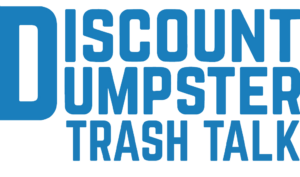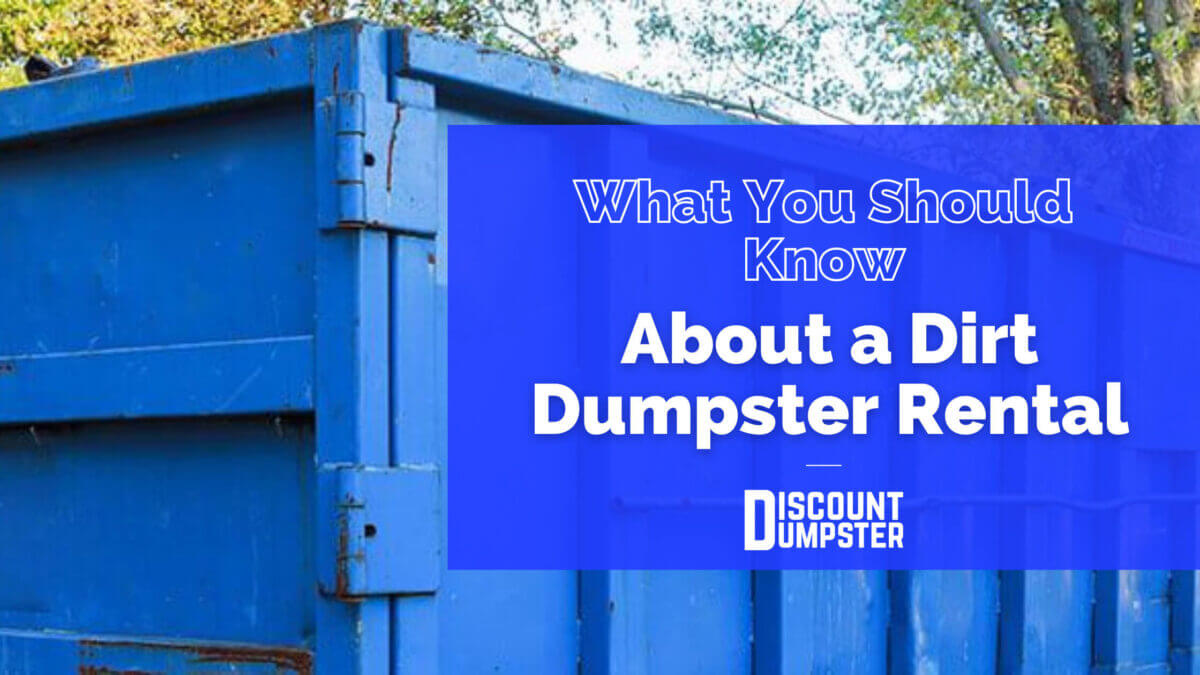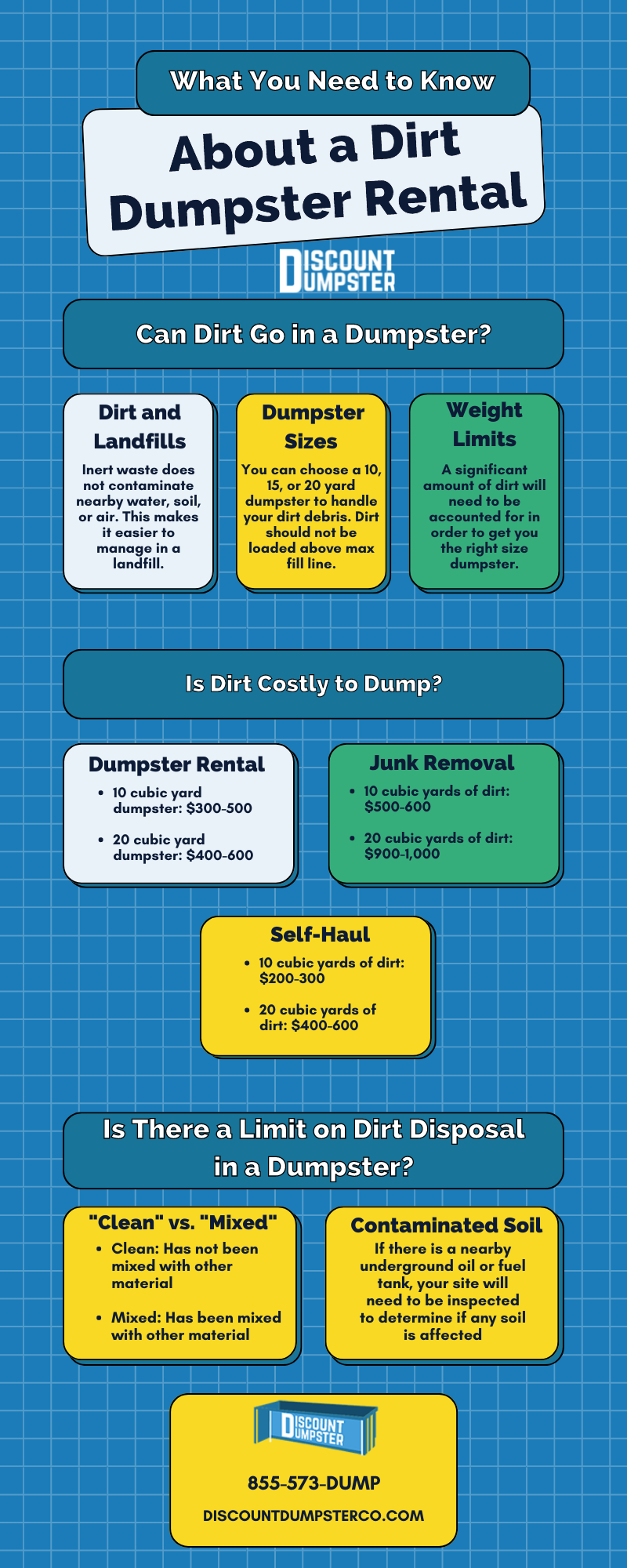If the dumpster is going to be used for mixed waste, the amount of dirt needs to be accounted for in the final weight of the dumpster container. Dirt is heavier than other typical household or construction waste. If you are disposing of large amounts of dirt, let us know when ordering so we can get you the right dumpster size for your needs.
Besides the weight limit on the amount of dirt you can dispose of, there are restrictions when the dirt is mixed in with other material. As long as you are not using an inert dumpster, dirt that has leaves, stones, or other organic waste can be placed in a regular dumpster container. But the dirt put in an inert dumpster must keep these types of material out of the dumpster container.
And in fact, some dirt can be “dirtier” than what is considered clean fill dirt. Clean fill dirt can contain some material other than dirt, but it should be limited to sand, gravel, or crushed concrete. Fill dirt that is considered non-clean has other material in it, such as household waste, metal, glass, paper or cardboard, or organic waste. In fact, dirt from landscaping jobs usually has enough plant material in it to render it useless as clean fill dirt.


